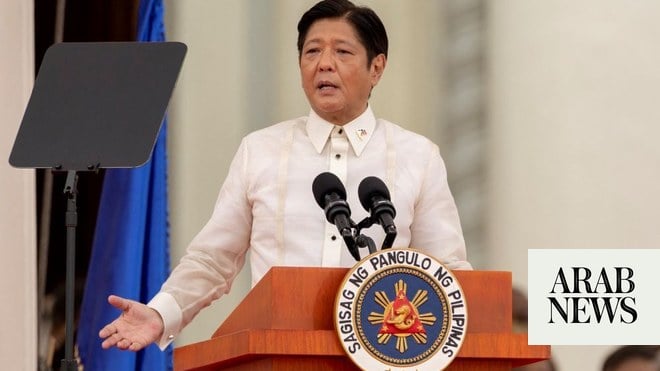
Keir Starmer has spent more time on foreign policy issues than perhaps any recent UK prime minister during the crucial first 100 days in office. Yet, much of his attention so far has focused on the Middle East and Europe, not least with the wars involving Israel and Ukraine.
However, recent days have seen the Asia-Pacific rise to the fore. The new UK government views the vast region as crucially important to UK foreign and economic policy in the post-Brexit era.
Starmer has been making his first trip as prime minister to the region, to Samoa, to attend the biennial Commonwealth Heads of Government Meeting, where he has been joined by King Charles fresh from his visit to Australia. The importance that Starmer attaches to the region, and the wider Commonwealth, is highlighted by the fact that he is making his multi-day visit just days before the government’s crucial budget statement on Oct. 30.
The starting point for the Labour government’s policy on the region is the acknowledgement that, with the possible exception of the AUKUS alliance with Australia and the US, the UK is not a strategically important nation that can — alone — significantly alter the military balance. However, this does not mean the UK government has no key interests in the region.
On the economic front, for instance, the new UK government hopes to build on the so-called post-Brexit pivot to the region, including to try to seize potential advantages that flow from its membership of the Comprehensive and Pacific Trans Pacific Partnership. That is the trade zone that includes Australia, Brunei, Canada, Chile, Japan, Malaysia, Mexico, New Zealand, Peru, Singapore, and Vietnam.
UK Foreign Secretary David Lammy engaged with many of these CPTPP member countries in July at the ASEAN Foreign Ministers’ Meeting in Laos. Lammy was keen to stress the UK’s economic priority of cooperation with ASEAN member states, which have a combined population of almost 700 million and an economy set to be fourth largest in the world by 2030.
The new UK foreign secretary also announced a £25 million UK-ASEAN partnership to tackle the world’s most pressing global health challenges. This includes helping detect and prevent future diseases as well as boosting health security within the region and also at home.
A UK-ASEAN Green Transition Fund worth up to £40 million was also announced to help boost green growth and leverage UK expertise to support countries at the forefront of the climate crisis. The funding will help unlock green growth for ASEAN businesses and in turn provide opportunities for green investments from the UK.
Outside of CPTPP, UK priorities in Asia are indicated by Lammy’s travels. These include a recent high-profile visit to China that was centered around a potential reset of relations, as he became only the second UK foreign secretary to visit in six years.
Lammy met with his Chinese counterpart Wang Li; Chinese Vice Premier Ding Xuexiang, who is responsible for science and technology; and other top Communist Party officials. He also met UK business leaders in Shanghai.
A potentially significant reset of UK policy is underway toward the Asia-Pacific that builds from the post-Brexit pivot to the region.
Andrew Hammond
Relations between the UK and China had, even before the coronavirus pandemic, cooled significantly under the last several UK Conservative governments. This includes following the political unrest in Hong Kong in recent years.
Today, even with a potential reset under the Starmer team, the mood music between Beijing and London remains a significant distance away from the “golden era” following President Xi Jinping’s UK visit in 2015. Lammy was keen this week to stress that, while a stronger partnership is possible with China, the new government will be a pragmatic, but critical, friend on issues including human rights. To this end, the UK government has commissioned a government-wide audit of the UK-China relationship, and has said it will be “clear-eyed” with future ties.
What the Starmer team is particularly interested in is better access to China’s huge economy. The UK has long received one of the largest amounts of Chinese foreign direct investment of any European country, and is one of Beijing’s top European trade partners. Meanwhile, China is one of the UK’s largest non-EU trade partners.
Following the China trip, Lammy last Sunday attended the inauguration of Indonesian President Prabowo Subianto. As with Beijing, the UK goal is a “new chapter” in relations with Jakarta.
In July, Lammy also visited India, where he sought to push forward a trade agreement. India is a key emerging economic superpower, and the most populous country in the world with around 1.4 billion people.
Last week Lammy also visited South Korea to tour the Demilitarized Zone before launching the first UK and South Korea Foreign and Defense Ministerial 2+2 Dialogue. The visit comes amid Ukrainian President Volodymyr Zelensky’s accusation that North Korea has sent 10,000 troops to help Russia’s war in his country.
Lammy has said this “is a stark reminder of the interconnectedness of conflict, with North Korea supporting Russia and prolonging conflict on Europe’s borders, while their illegal weapons of mass destruction program threatens regional security.” He added that this is why it is important for the UK to “engage globally over the conflict on our continent and security beyond it.”
Taken together, a potentially significant reset of UK policy is underway toward the Asia-Pacific that builds from the post-Brexit pivot to the region. Economics, not only politics, is at the heart of this, with CPTPP one key opportunity the Starmer team hopes to seize.
• Andrew Hammond is an Associate at LSE IDEAS at the London School of Economics.












